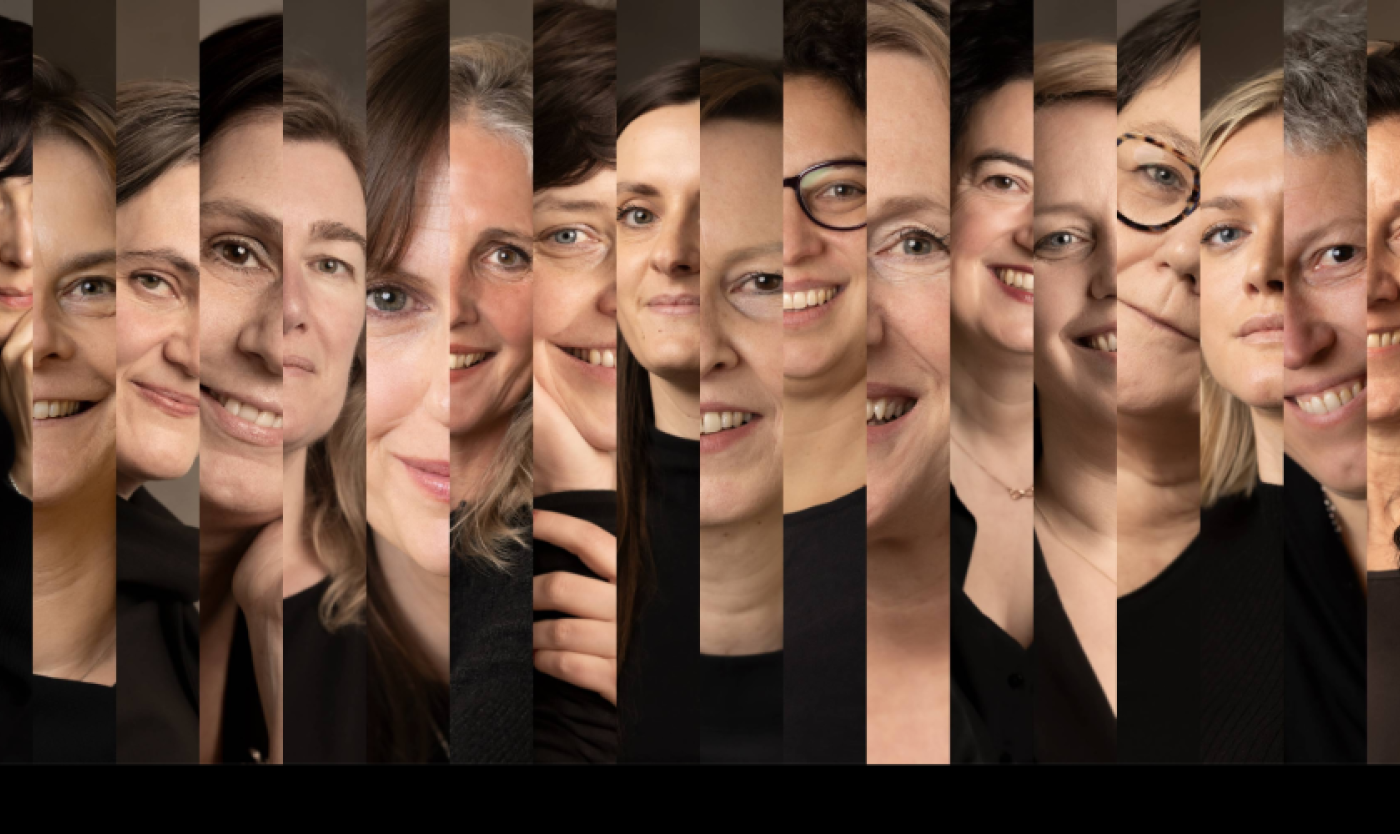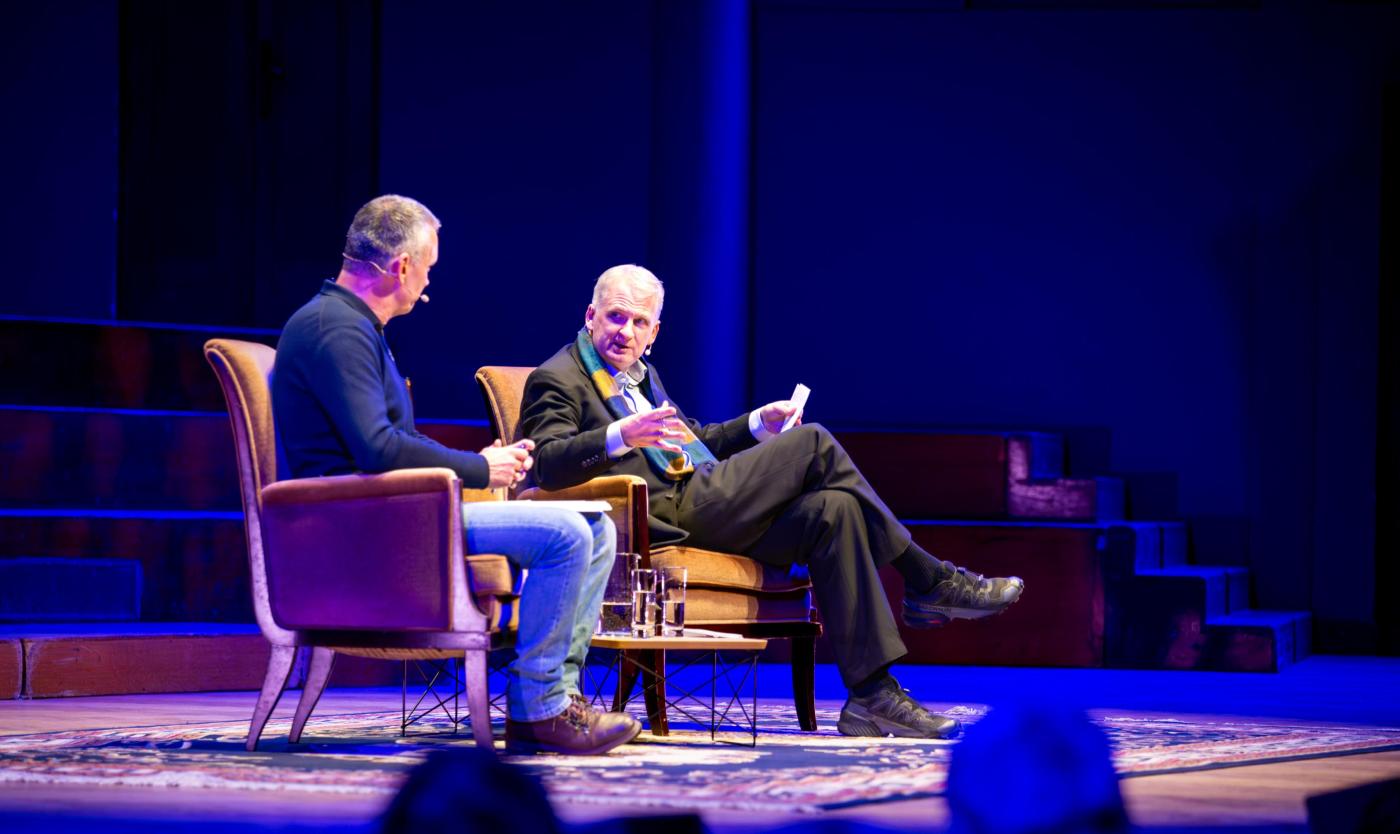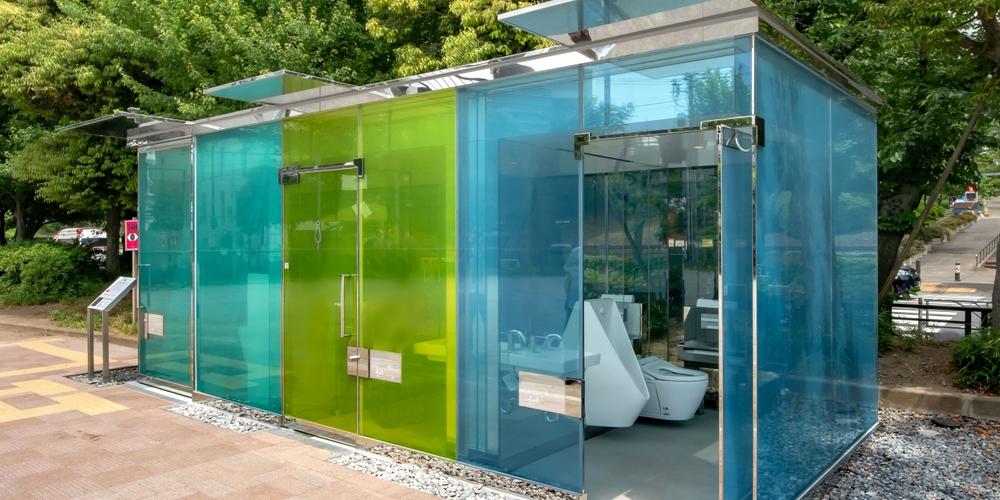
How do you create streets and squares where everyone feels safe, respected and free to express themselves? That’s just one of the themes under discussion in the workshops at the Molenbeek for Brussels 2030 Spring Academy (see below). Professor Lucas Melgaço of VUB’s Department of Criminology will be taking part. There are no easy solutions, he warns: “In the public space, there will always be conflict.”
In 1917, an anonymous artist submitted an object for an exhibition in New York: a urinal, signed R. Mutt. The work, today considered a landmark in art history, was not put on display. For years it was attributed to the legendary dadaist Marcel Duchamp. But the idea most likely came from Elsa von Freytag-Loringhoven – also a dadaist, but rather less legendary.
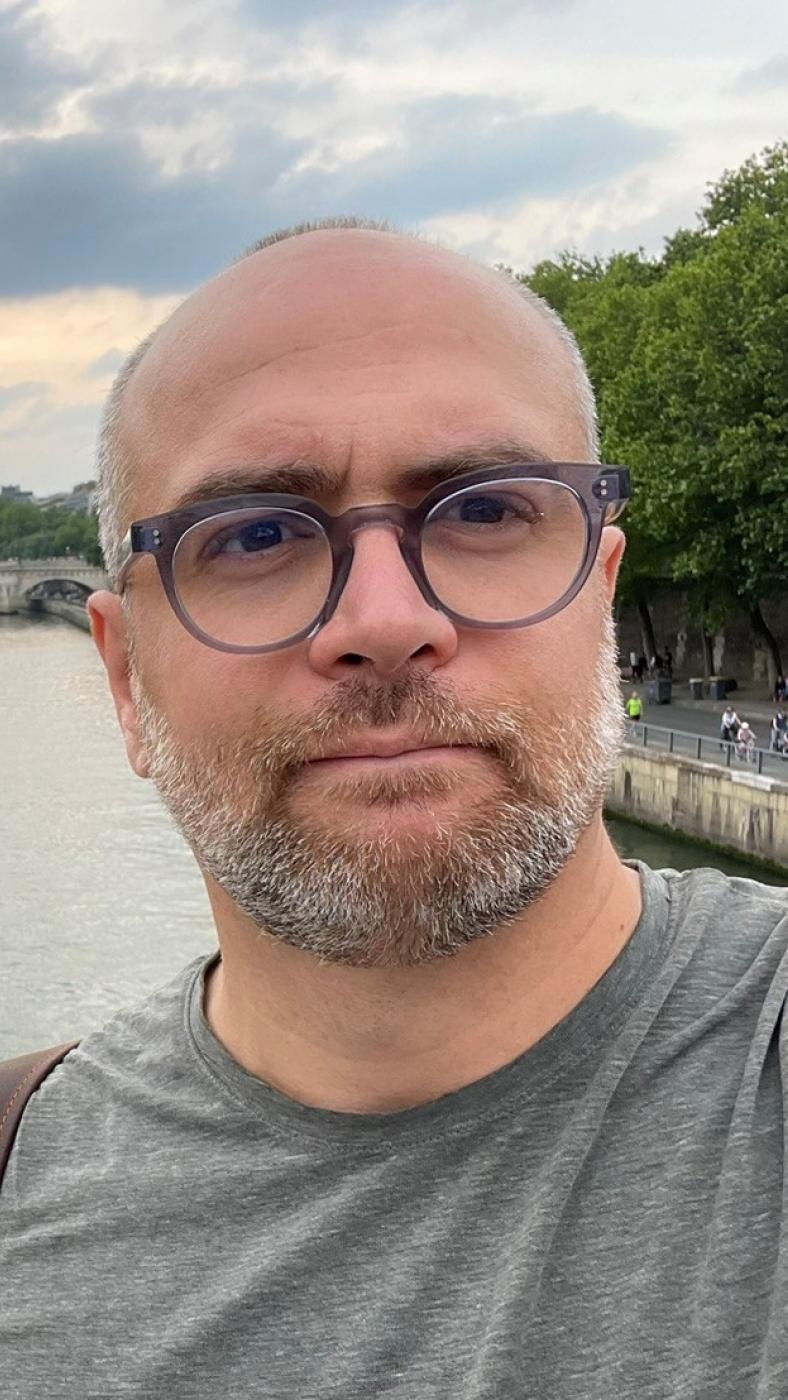
Criminologist Lucas Melgaço
It’s emblematic of how women are so often overlooked, in the art world and in relation to sanitary facilities. Last year, Professor Lucas Melgaço and his master’s student Lien Maes published an article about public toilets in Brussels, of which there are a diminishing number. No problem for men, when there are urinals almost everywhere, but a real issue for women and older people. Even in its smallest corners, a city can apparently be designed for men. However, Brussels is doing what it can to make its parks and squares more accessible to women.
Lucas Melgaço: “A space that is safer for women is safer for everyone. That’s why lots of parks and squares are getting a makeover. Sports pitches, which are mainly used by men, are moving to less central locations, and in their place there are more lawns and benches, so that people can picnic and children can play there. That automatically allows for more diversity and a more pleasant, safer environment.”
But without public toilets, are these spaces actually usable?
“If you want to make the public space attractive to women and older people, you do indeed have to provide clean public sanitary facilities.”
So why are they disappearing?
“Because public toilets are a source of conflict. Homeless people use them as shelter or for washing. People take drugs there. They can create bad smells and cause other problems. Local residents and shopkeepers are often not in favour. The reaction from policymakers is often: get rid of them, there are enough urinals. So it’s mainly a problem for women and older people.”
What’s the solution?
“Invest in good public toilets. Self-cleaning toilets use a lot of water and aren’t cheap to maintain, but you have to live with that. There are public-private cooperations with shop, cafe and restaurant owners who make their toilets available to the public for a small fee. For homeless people or people in poverty, that can still be too expensive.”
It’s impossible to satisfy everyone, then?
“That’s a constant in public space: there will always be conflicts.”
What do you make of the debate around the Brussels mobility plan Good Move?
“I wasn’t surprised that there are arguments about it, even between the progressive parties. Green focused on pollution and on bikes as the solution, red on the fact that some people need to use their cars. The idea behind it was a good one. Car traffic contributes to climate change and causes air pollution and insecurity in the city. On the other hand, I understand that some people are less interested in the bigger picture if they can’t get to work.”
Molenbeek’s Gemeenteplein is an interesting experiment
It seems like there was lots of communication and not enough participation. Is that fair to say?
“Some people in Brussels felt they weren’t being listened to. Maybe it all happened too quickly? But as a policymaker, you sometimes have to push something through. You can organise consultations and ask questions until the cows come home, but at some point you have to make a decision. That sometimes causes resistance, but with hindsight people will often see the advantages. Take the introduction of compulsory seatbelts in cars. That’s totally normal now. More recently there was the introduction of the 30km/h rule in Brussels. As a driver, that took some getting used to, but as a cyclist I find it safer and more pleasant now. I also get the sense that cycling has increased since then.”
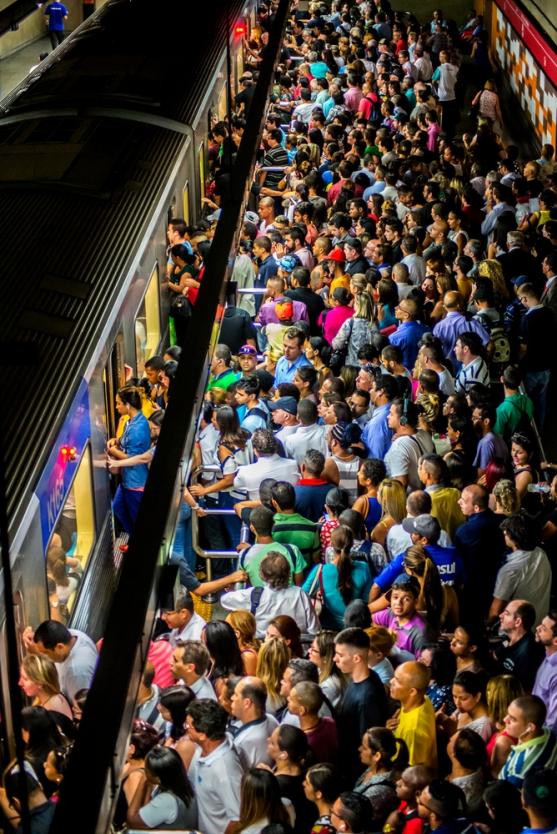
Metro São Paulo
And what if new rules cause a backlash?
“If the criticism is justified, you have to accept it. Then you can adapt your plans or reverse a decision. In any case, there will always be someone who isn’t happy. You can’t have public space that is green, and also pedestrian and cycle-friendly and car-friendly. I find the Gemeenteplein in Molenbeek an interesting experiment in this regard. It was designed as a shared space: there’s no distinction between the square, the pavements and the streets, and all traffic is allowed. The intention was that it would be self-regulating. Drivers would drive carefully, for example, because there would be children running around and people cycling past. I regularly go and look at it with my students. They generally don’t see it as a safe place for children to play.”
“There are camera systems that blur faces by default”
Because the municipality wanted to please everyone?
“Exactly. Personally, I think you’re better off making a square like that car-free. The power imbalance between heavy cars and vulnerable people is too great. You see more women and children on squares without cars.”
You’re from Brazil. Are there experiments being done there with public space?
“Yes, absolutely. I remember trials of women-only metro carriages during rush hour, in an effort to tackle transgressive behaviour. The pilot project was stopped almost everywhere. Feminist groups were divided over it. Some were for: they wanted action, even if it wasn’t a structural solution. Others thought it was a bad idea, because it puts the blame on the victims. They were also concerned that transgressive behaviour would increase in other carriages: a woman using that carriage would be giving a ‘free pass’ to men to do what they wanted.”
Do you think governments should be able to use cameras and other surveillance techniques?
“I think they should, on condition that they respect privacy rules and don’t use it to discriminate against people. It’s a difficult balance. In Brazil, they often use facial recognition at concerts, football matches and other events. That’s not allowed in Europe, and rightly so, I think: the technology is a major invasion of privacy compared to the gains you make in terms of security.”
“I sometimes miss spontaneous street parties”
How do you mean?
“The objective is to track offenders and criminals, but to do that you monitor everyone, be they criminal or not. Technology that was created for one well-defined goal can be abused for many other aims. Geolocation – which allows you to shadow someone via their smartphone – is an example of that. This technology is fine for capturing a terrorist, but you can also use it to gather information about other people. If I can follow everywhere you go, I know what your job is, your political leanings, your religion… I also know what health problems you have and who you’re having an affair with. That’s useful if you want to put pressure on a politician. People think that cameras and other surveillance techniques are no problem, because they have nothing to hide. That’s not well thought out.”
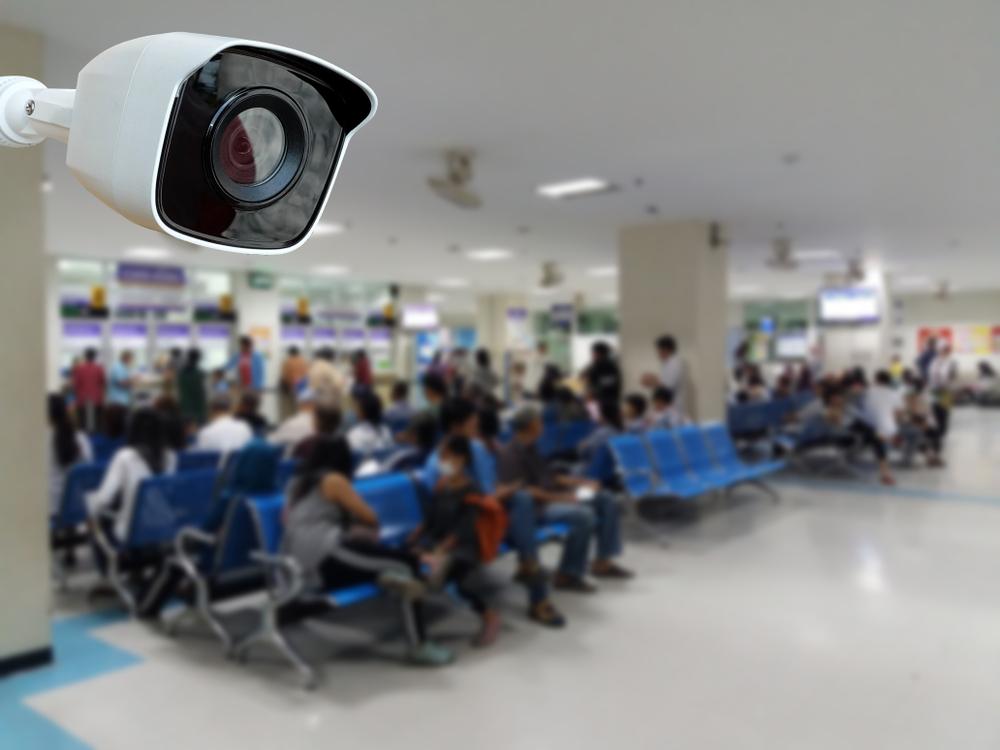
So how do you tackle it the right way if you do want to use cameras?
“Camera systems must meet strict privacy and data protection laws and comply with the principles of privacy by design. That means, for example, that faces have to be blurred by default. Only if the police need clear images can that blurring be removed, selectively. Authorities should also deploy cameras for a limited period only. Is there a heightened security risk during the Christmas market? Install cameras and remove them when the market is over. Events like this are sometimes used as a pretext for cameras to be permanently installed.”
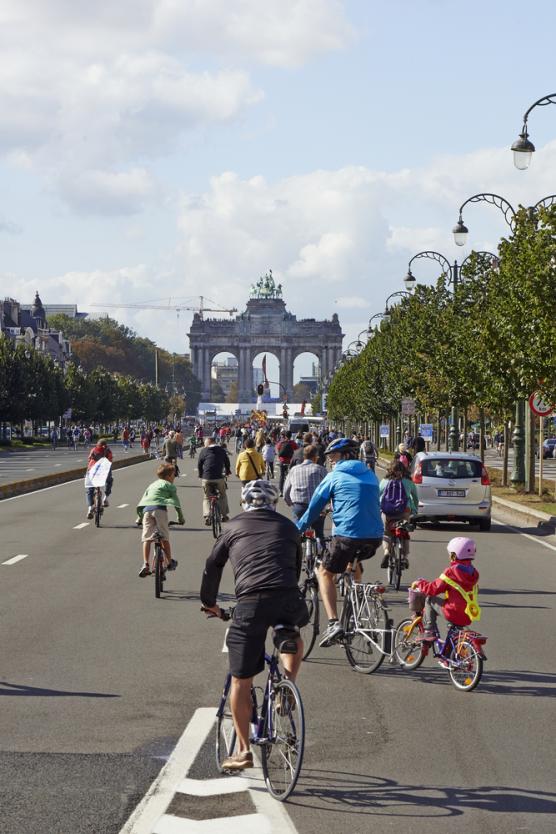
You’ve lived in Brazil, France and Canada. What’s the best thing about living in Brussels, for you?
“I live in Tervuren – I’m one of those people who commute to VUB on my cargo bike! I like Brussels because it’s a walkable city. Public transport could be better, but you can get to most places by bus, tram or metro and on foot. In Brazil, nobody takes their children to school by bike, but here you can.”
Is there anything you miss?
“Definitely. I miss the more spontaneous use of public space, like street parties and other small everyday celebrations. In Brazil, these things often happen organically. Particularly in cities like Rio de Janeiro, where I lived for a while. You hear music everywhere, people come together and often start to dance. There is more freedom in the public domain, a bit more anarchy.”
What do you think of the Molenbeek for Brussels 2030 Spring Assembly?
“I like the idea of bringing academics and other experts to the table with local actors and activists. I hope the project can also help boost Molenbeek’s reputation. The people who live and work here deserve that.”
Molenbeek for Brussels 2030 Spring Academy
Lucas Melgaço is taking part in Security and Freedom, from Public Space to the Digital Realm as a VUB expert. It’s one of the four thematic workshops at the Molenbeek for Brussels 2030 Spring Academy (17-24 April), which brings together civil society and the worlds of art, culture and science in the context of preparing Molenbeek and Brussels’ bid to be European Capital of Culture 2030. The partners are VUB and ULB, Brussels Studies Institute and Brussels Academy, and RAB/BKO. In addition to the closed Spring Ateliers, there will be a public programme with entertainment and networking.
Brazilian on Belgian soil
Lucas Melgaço is from Brazil. His PhD examined the rise of gated communities in Campinas and the impact on the city and its inhabitants. He moved to Belgium in 2012 and in 2016 became a professor at VUB’s Department of Criminology, where he conducts research on topics such as the public domain, public order, protests and security. He teaches urban criminology, policing and surveillance to students of criminology and urban studies. He has recently become coordinator of Gatherings, an EU project that researches surveillance of events in the public domain.
GATHERINGS Project | Providing Public Security with Privacy (gatherings-project.eu)
